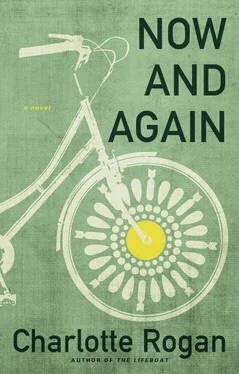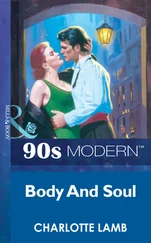Lyle backed away. He could see how the little pool of lamplight was just big enough to contain Maggie and the desktop and how there wasn’t any room in it for him.
7.3 Maggie
One day while Valerie was out of the room on an errand, Maggie answered the telephone to find a Mr. Pickering calling to speak with the director. “Please hold while I see if he’s available,” she said, but she was thinking, Pickering! Wasn’t he the author of the report called Prisons and Profits she had found on Valerie’s desk? When DC came on the phone, she disconnected her extension, and then, as quietly as she could, she pressed the button to connect again, ready with an excuse in case either of the men could hear her muffled breathing. But the two men were talking excitedly, and if the open line whooshed or echoed, they didn’t seem to notice. The ACLU woman had been right about the sense of urgency and importance. Right about the adrenaline rush. Right that the line was not wide and heavily patrolled but thin and alluring, as much a mirage as an identifiable boundary between what was acceptable and what was not.
“There’s a precedent for using prison labor if the business serves a public purpose,” Pickering was saying. “And what’s more important to the public than a safe supply of inexpensive food? What’s more important than keeping jobs right here in Oklahoma?”
DC sounded unsure. “I don’t know. The munitions factory is a government facility. We’re authorized to provide labor to government entities and even to some private businesses, but not to farms. How would we keep the prisoners from escaping? I don’t think chain gangs are a modern-day solution. I’d like to help you out, but my hands are tied.”
“What are they tied by?” asked Pickering. “Realistically, I mean.”
“Laws, for one thing,” said DC.
“And who makes the laws?”
When DC didn’t answer, Pickering said, “We’re not talking about Moses and the stone tablets, here. We’re talking about laws made and changed by human beings. Human beings who are a lot like us. Who could actually be us if you think about it. A few persuasive arguments are all we need — that and a tiny bit of access to the people in charge. That’s what the draft legislation group is all about.”
DC promised to keep an open mind.
“Just so you know,” said Pickering, “it’s projected that soon one out of every three African American men will go to prison at some point in his lifetime, and seventy percent of all released inmates will be re-arrested within three years. But it can’t just be the African Americans who are breaking the laws, even if they’re the ones getting caught. My point is that the industry needs to adopt a two-pronged approach: on the one hand, we need stricter laws and sentencing; on the other, we need better enforcement. Yours is a growth industry, anyway you slice it.”
“Hmm,” said DC. “Growth is good.”
“My firm leverages your clout with the movers and shakers. We place people in think tanks that draw up model laws. We help sell those laws to the public. That’s what I can do for you. What you can do for me is to review that draft legislation I sent you. The material is highly sensitive, so your eyes only and all that. And if you can provide some relevant statistics or any other supporting information, I’d be very grateful. I promised my clients I’d get it to some influential members of the state legislature next month, and time is running short.”
“I guess it wouldn’t hurt to take a look,” said DC. “I guess I can do that for you.”
As soon as Valerie stepped back in the office, DC stuck his head out of the door and asked, “Did that missing document ever show up?”
“No,” said Valerie. “It never did.”
“Damn it,” said DC. “Damn it all to hell.”
“DC seems awfully grumpy lately,” Maggie remarked in an attempt to elicit information, but Valerie merely grunted and said, “You would be too.”
“I would be when?”
“DC is under a lot of pressure. The rest of us assume it’s all wine and roses for the people with the important jobs, but they take on a lot of responsibility. We’re lucky they’re the ones making the decisions so we don’t have to.”
“What decisions?” asked Maggie.
“Important ones,” replied Valerie. “Decisions that benefit everybody else.”
Maggie tried not to let Valerie’s air of superiority bother her, but more and more she found herself thinking, Why should I always take a back seat to Valerie? But then she told herself, My job is only a means for accomplishing my real work, anyway. What Valerie and DC do on their own time isn’t my affair. Then she laughed at the word “affair,” and then she stopped laughing. Nothing was as it seemed!
During her last days at the munitions plant, Maggie had become progressively certain that Mr. Winslow was monitoring her movements, and now she had the same feeling about Valerie, who would quickly avert her eyes when Maggie looked up from her desk. And sometimes Maggie heard strange patterings in the hallway, as if she was being followed by someone wearing soft shoes. She knew from the movies that a guilty mind could play tricks on a person, but should a person feel guilty for defying convention or even breaking a few laws in order to do right? The sense of being watched was exacerbated by Hugo, who leered at her when she walked by the security desk and who had started to loiter in the hallway outside the director’s office at lunchtime or when he was on his break. Even when he was safely on duty, Maggie couldn’t help feeling he was lurking around the next corner about to burst into sight, which set her nerves on edge. “There you are!” she would cry whenever she saw him.
“Waiting for me again,” Hugo would reply, and even though she did her best to avoid him, Maggie found herself saying, “There you are!” several times each day.
Once, soon after she had given her notice at the munitions plant, Winslow had passed Maggie in the hallway and said, “I’ve got my eye on you,” but he had said it so quietly that Maggie wondered if she had only imagined it. Now it occurred to her to turn the tables on Hugo by making him think she was the one watching him. She found her opportunity the next day, when she happened to be walking back from the restroom just when Hugo was starting his lunchtime patrol. She fixed her eyes on the waxed linoleum floor tiles and tried to appear preoccupied with her own thoughts. As the hard soles of his boots clipped toward her, she almost lost her nerve, but at the last second she whispered, “I’ve got my eye on you,” very quietly, under her breath.
“What? What?” asked Hugo, stopping in his tracks and giving her a piercing glare.
Maggie raised her eyes and smiled as brightly as she could. “I didn’t say anything,” she said. “Don’t tell me you’re hearing things now!”
This little act of aggression came seemingly out of nowhere. It gave Maggie confidence, but it also worried her, as if she had taken a step closer to the line the PATH woman had talked about. The trick was to use Hugo’s stubbornness to her advantage, for he was too big and too smart for her to make him go against his nature. Still, she could feel events gathering momentum, and when she approached the exit that evening, she looked at Hugo in a new way — not so much as an adversary, but as a tool. He might have a shiny badge pinned to his uniform and muscle-bound shoulders and a gun strapped to his hip and a savage glint in his smiling eyes, but she had the element of surprise. I know what you are, she thought, but what do you really know about me?
7.4 Maggie
Every year, DC took his family on a camping trip at the end of the summer, and as the date approached, Valerie became more and more irritable. She huffed and moaned and made cryptic gestures in the direction of the office where DC sat with his hands clasped together and his head bowed over his work. When Maggie asked what was wrong, Valerie said, “I’m going to be ill. I’m going to be physically ill.” Once DC left for his vacation, she started to miss work — first it was a broken alternator and then it was a summer cold.
Читать дальше












